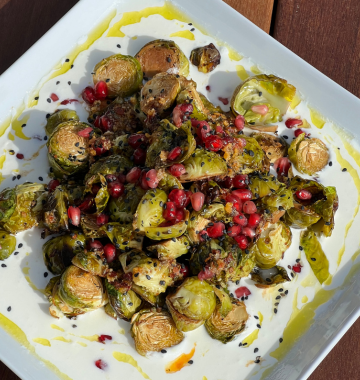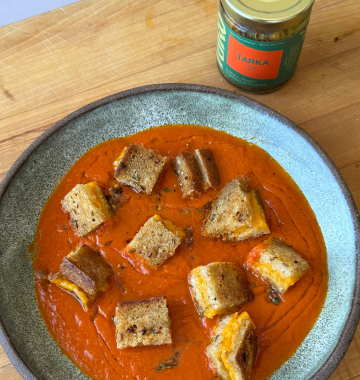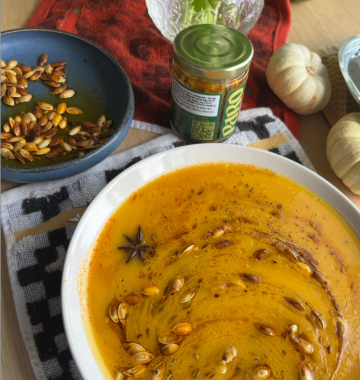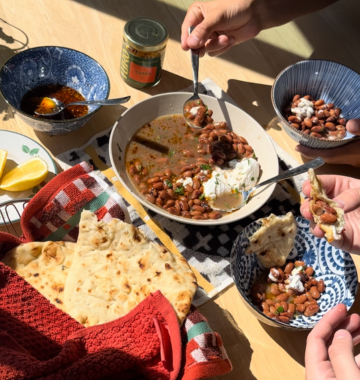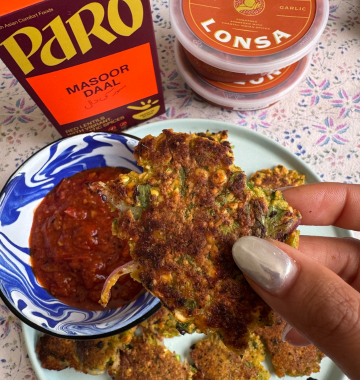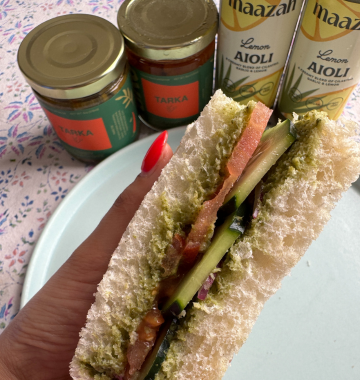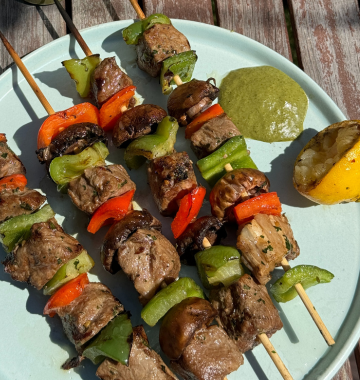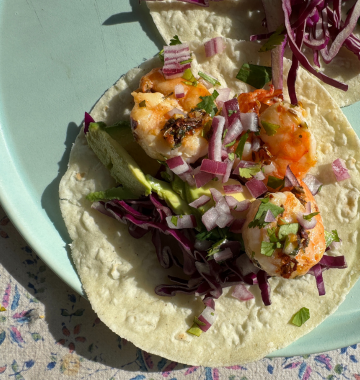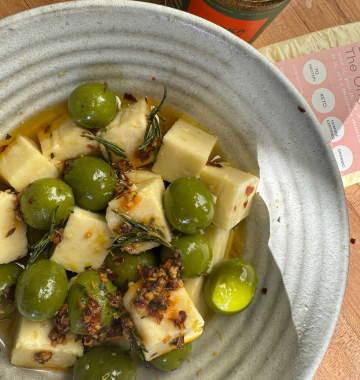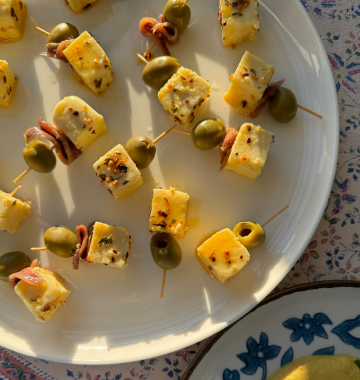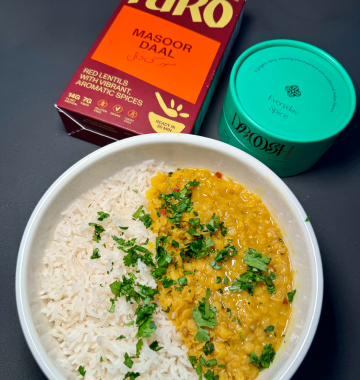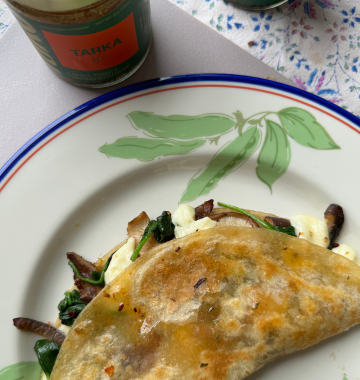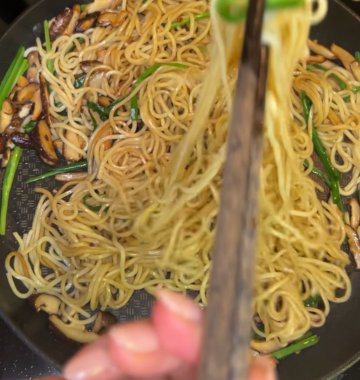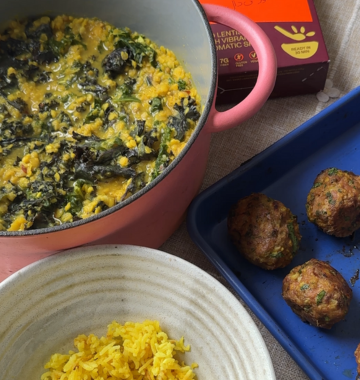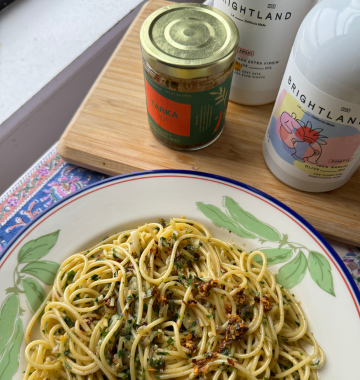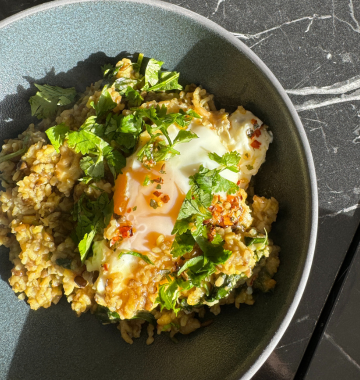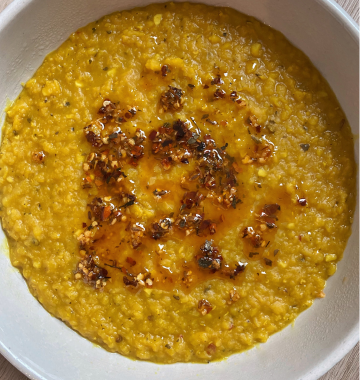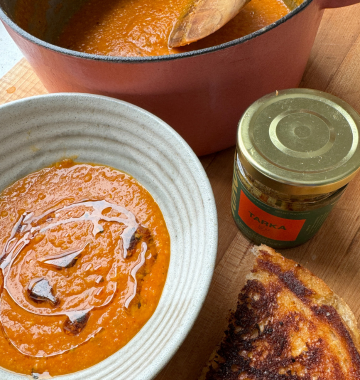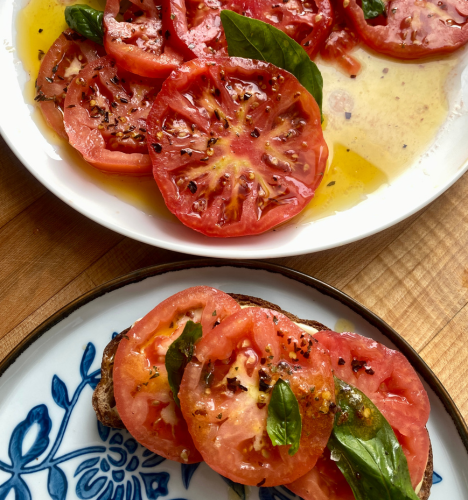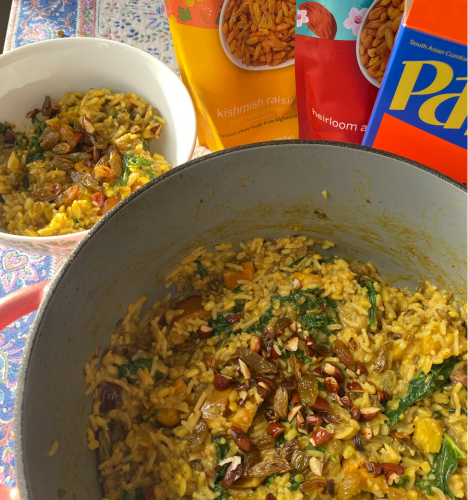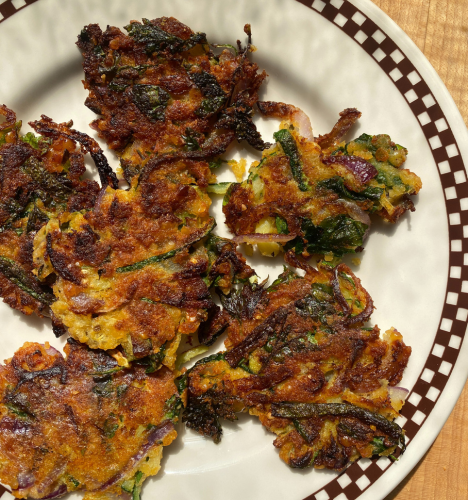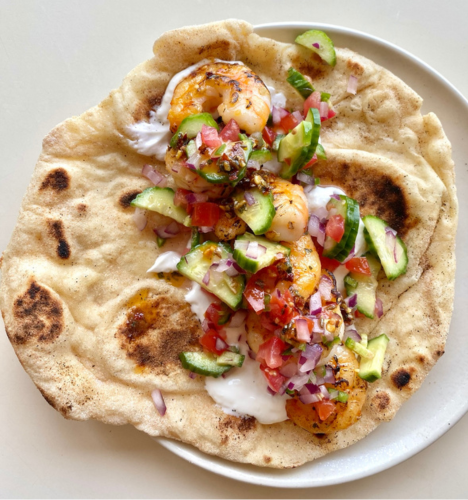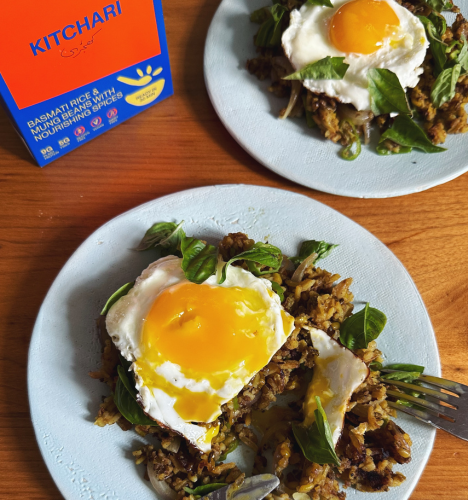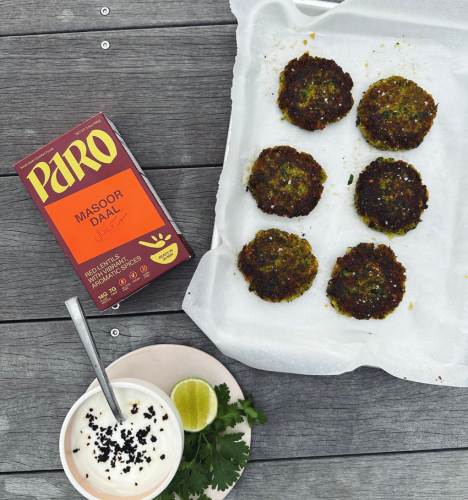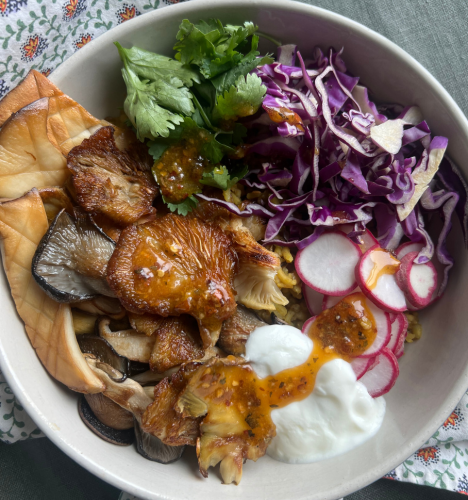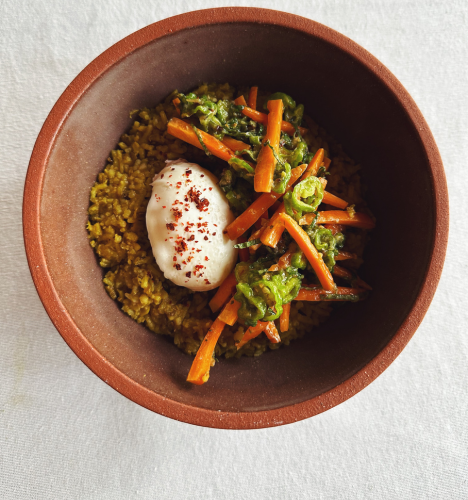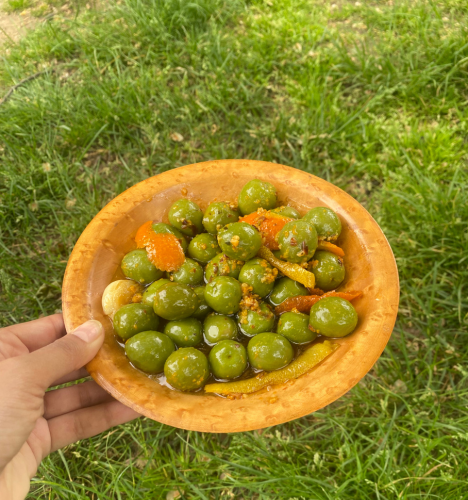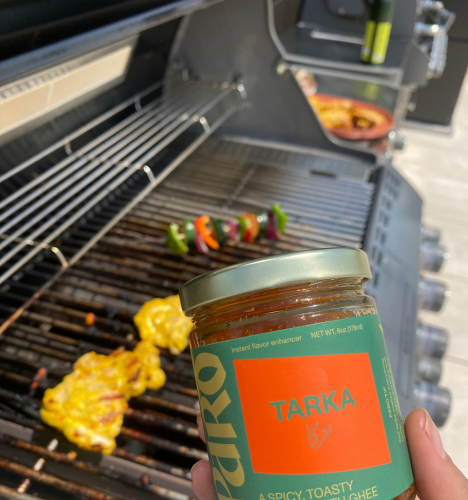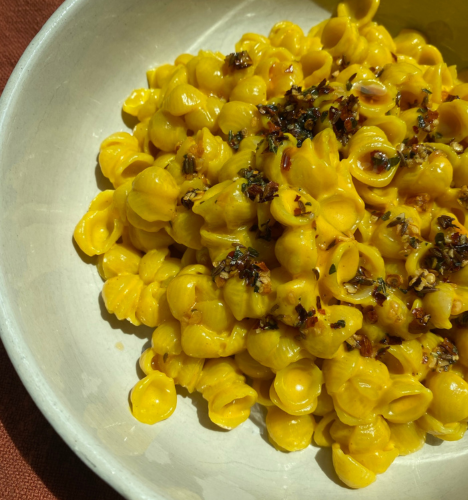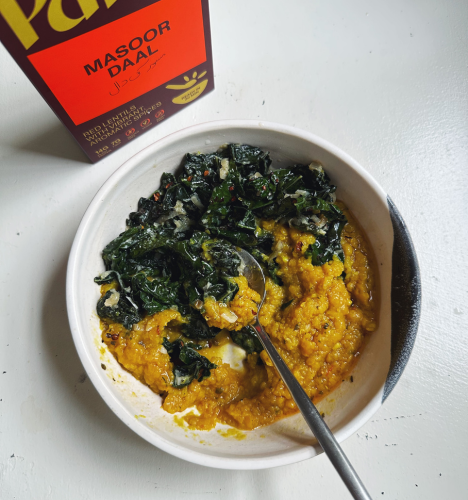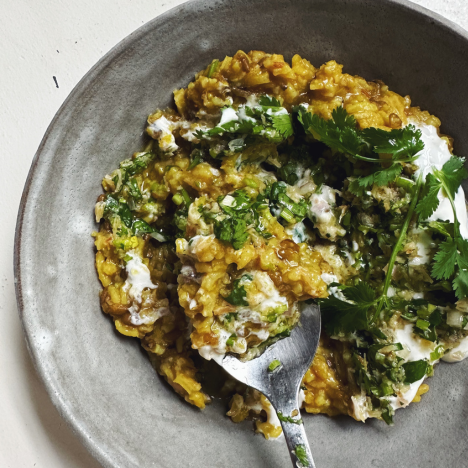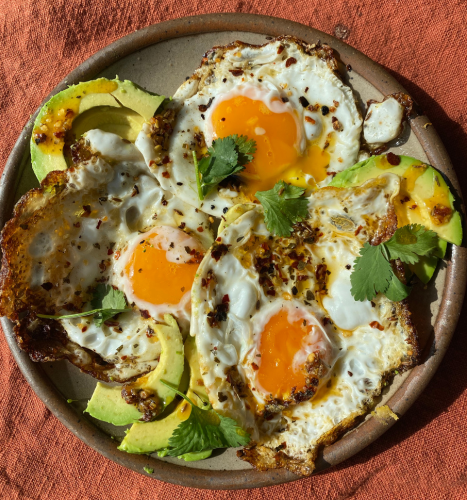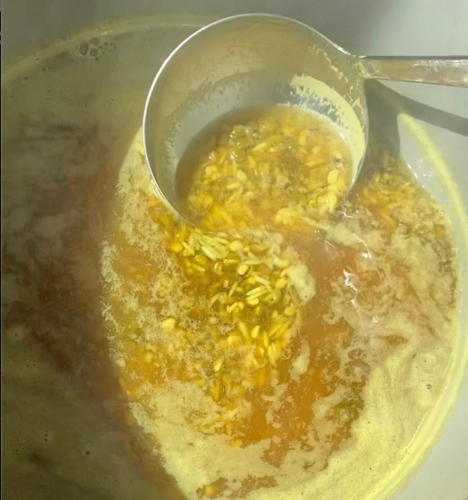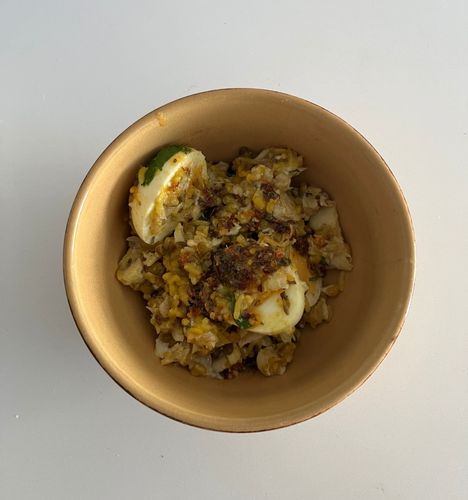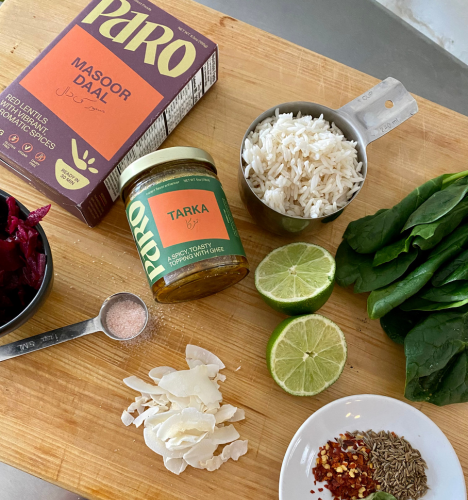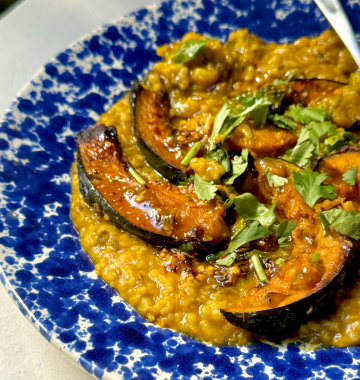


 4-6
4-6
Ingredients
1 box of Kitchari from Paro
1/2 Kabocha squash
4 cups water + more as needed
3 tbsp extra virgin olive oil
1 tsp cumin powder
Salt and pepper to taste
Chopped cilantro and Paro Tadka for topping
Recipe by Helia Sadeghi
Kabocha Squash with Kitchari
 30 minutes
30 minutes
 4-6
4-6
METHOD
-
1
Roast your squash:
Cut the kabocha squash in half. Remove the seeds. Cut the squash into half-moon-shaped slices less than an inch thick, and arrange them on a lined baking sheet. Drizzle with olive oil, salt, and cumin. Bake at 400°F until the squash is slightly browned and fully soft, about 20-30 minutes. -
2
Make Kitchari:
Fill a medium pot with four cups of water and bring it to a boil. Save a few of your prettiest squash slices for topping, chop the rest of the squash, and add them to the pot. You can include the kabocha skin, but if you do not want to, you can easily remove it at this stage; when the squash is soft, the skin peels off easily.
Open up a box of Kitchari mix from Paro. Add the contents of the bowl to the pot of squash. -
3
Place the pot on high heat. Once it comes to a boil, turn it down to a low simmer. Cook the Kitchari according to package instructions for about 22-30 minutes until everything is soft and melting into each other. Stir occasionally and add water as needed if Kitchari becomes too thick. It is meant to have a risotto-like consistency, so adjust the consistency as you stir and keep an eye on it. Kitchari thickens further as it sits, so you may add water each time you reheat the dish.
-
4
Plate and enjoy:
Taste and adjust the salt, then ladle Kitchari into your desired bowl(s). Top with slices of roasted kabocha squash, cilantro, and Paro Tadka. Optionally, enjoy with a dollop of yogurt and a squeeze of lime.
Share and enjoy!
METHOD
-
1
Roast your squash:
Cut the kabocha squash in half. Remove the seeds. Cut the squash into half-moon-shaped slices less than an inch thick, and arrange them on a lined baking sheet. Drizzle with olive oil, salt, and cumin. Bake at 400°F until the squash is slightly browned and fully soft, about 20-30 minutes. -
2
Make Kitchari:
Fill a medium pot with four cups of water and bring it to a boil. Save a few of your prettiest squash slices for topping, chop the rest of the squash, and add them to the pot. You can include the kabocha skin, but if you do not want to, you can easily remove it at this stage; when the squash is soft, the skin peels off easily.
Open up a box of Kitchari mix from Paro. Add the contents of the bowl to the pot of squash. -
3
Place the pot on high heat. Once it comes to a boil, turn it down to a low simmer. Cook the Kitchari according to package instructions for about 22-30 minutes until everything is soft and melting into each other. Stir occasionally and add water as needed if Kitchari becomes too thick. It is meant to have a risotto-like consistency, so adjust the consistency as you stir and keep an eye on it. Kitchari thickens further as it sits, so you may add water each time you reheat the dish.
-
4
Plate and enjoy:
Taste and adjust the salt, then ladle Kitchari into your desired bowl(s). Top with slices of roasted kabocha squash, cilantro, and Paro Tadka. Optionally, enjoy with a dollop of yogurt and a squeeze of lime.
Share and enjoy!


 20 minutes
20 minutes
